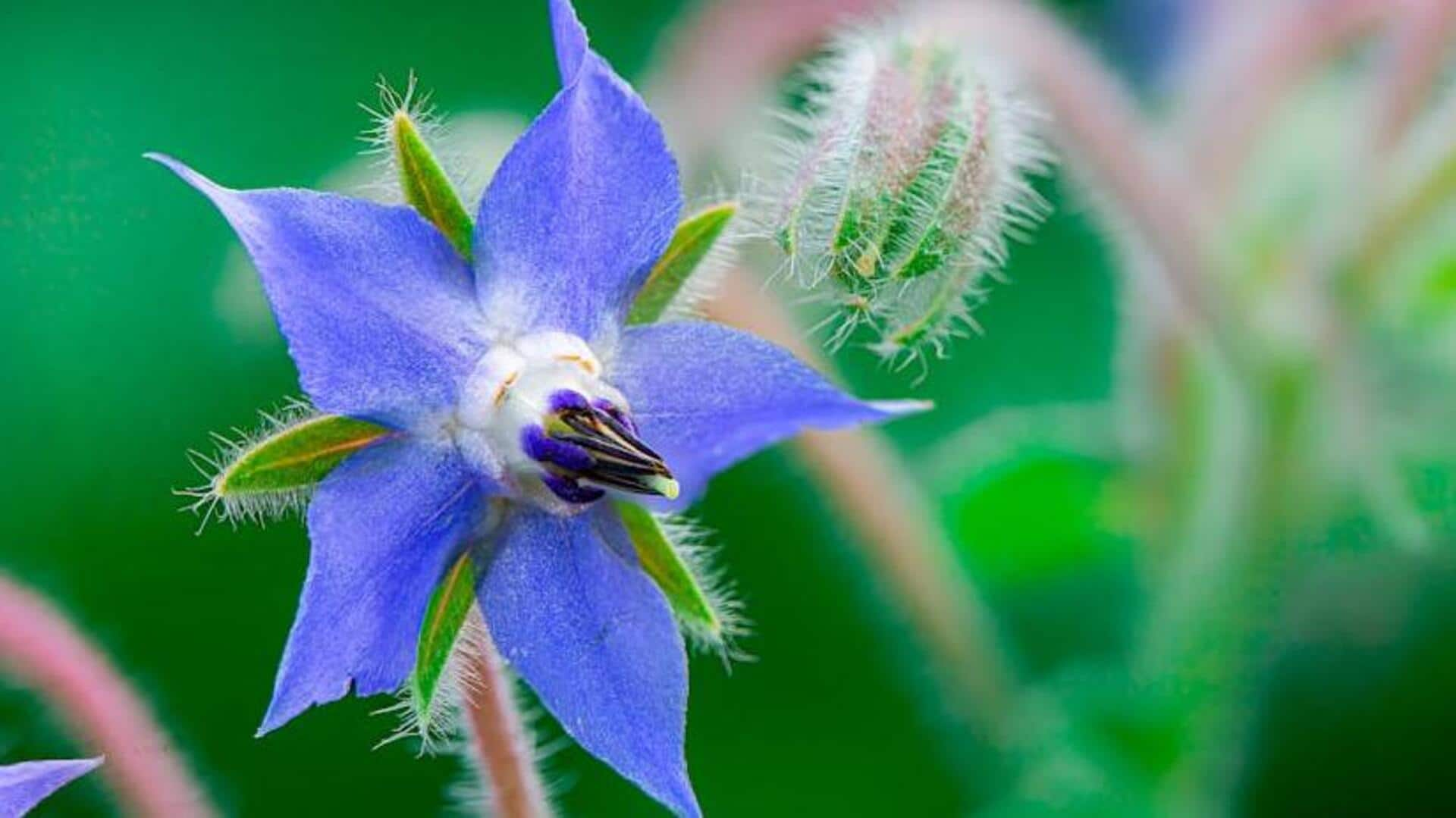
How to grow borage in small spaces
What's the story
Star-shaped blue flowers of borage are sure to catch your attention, but did you know that the cucumber-flavored herb can be grown even in a small space?
Whether you have a tiny garden patch or just a small balcony, you can easily grow borage if you know how to do it.
Here are a few tips on growing borage even in small spaces.
Container selection
Choosing the right container
Choosing the right container is essential for growing borage in small spaces.
Choose pots that are a minimum of 12 inches deep to accommodate the plant's root system.
Also, make sure that the container has drainage holes to avoid waterlogging which can damage the plant.
Using lighter materials such as plastic or fabric pots makes moving around them easier if required.
Soil preparation
Optimal soil mix
A well-draining soil mix is key for healthy borage growth.
Mix equal parts of potting soil, perlite, and compost to create a nutrient-rich environment.
This mix will ensure good aeration and retain enough moisture without turning soggy.
Adding organic matter like compost improves soil fertility and encourages robust plant development.
Light exposure
Sunlight requirements
Though borage does best in full sun, it can also flourish in partial shade if required.
Try to provide at least six hours of direct sunlight every day to encourage flowering and healthy growth.
If your space doesn't receive enough sunlight, you may also use grow lights as an additional source of light.
Water management
Watering techniques
Proper watering techniques are essential when growing borage in containers.
Water the plants thoroughly until excess water drains from the bottom of the pot but refrain from overwatering as it may lead to root rot.
Let the top inch of soil dry out between waterings to maintain optimal moisture levels.
Pest management
Pest control measures
Keeping pests at bay is essential in small spaces where infestations spread like wildfire.
Check leaves, stems, and flowers for damage caused by aphids, caterpillars, slugs, and snails. Get rid of affected parts immediately.
Using natural remedies such as neem oil and insecticidal soap to control outbreaks is more effective. It also ensures the ecosystem's balance is maintained, leading to successful harvests.